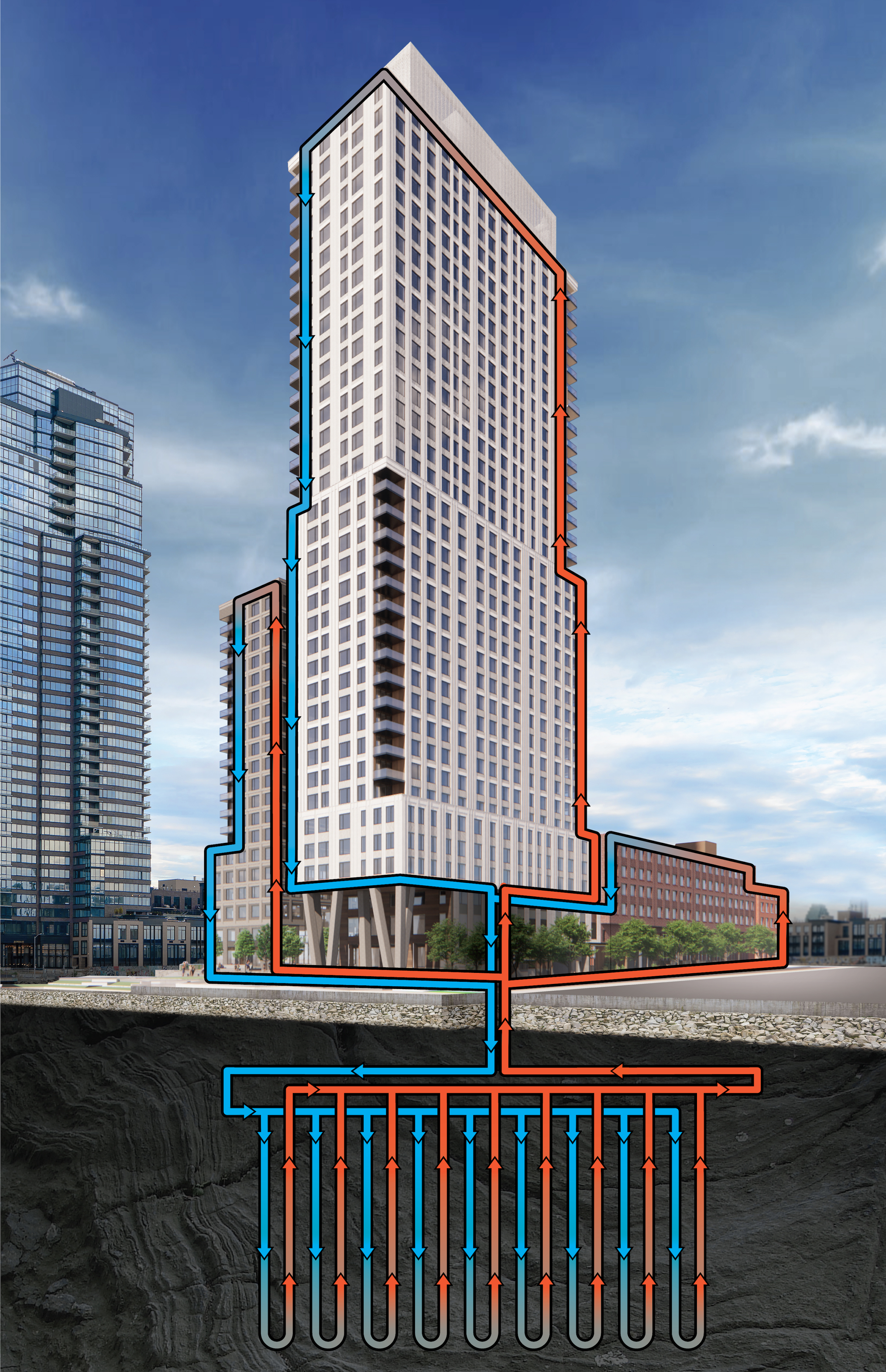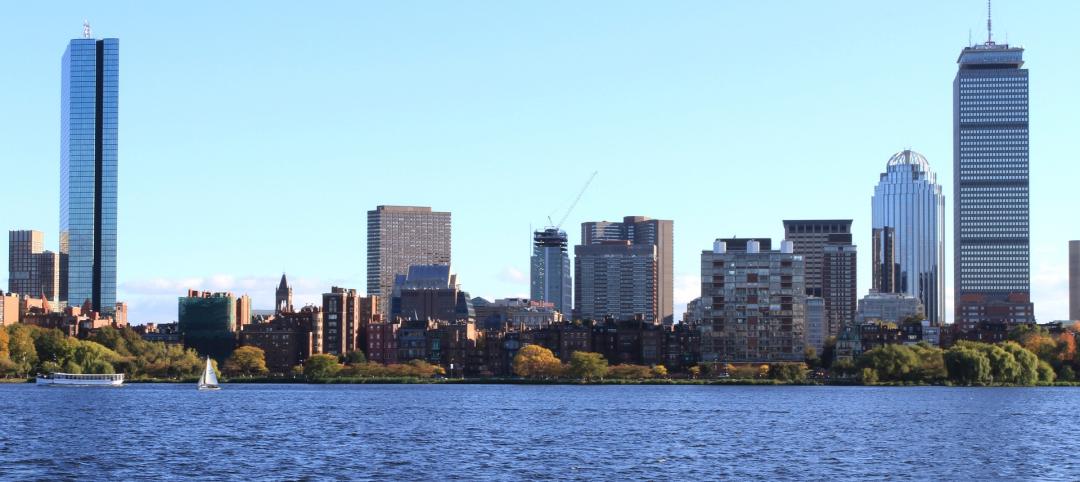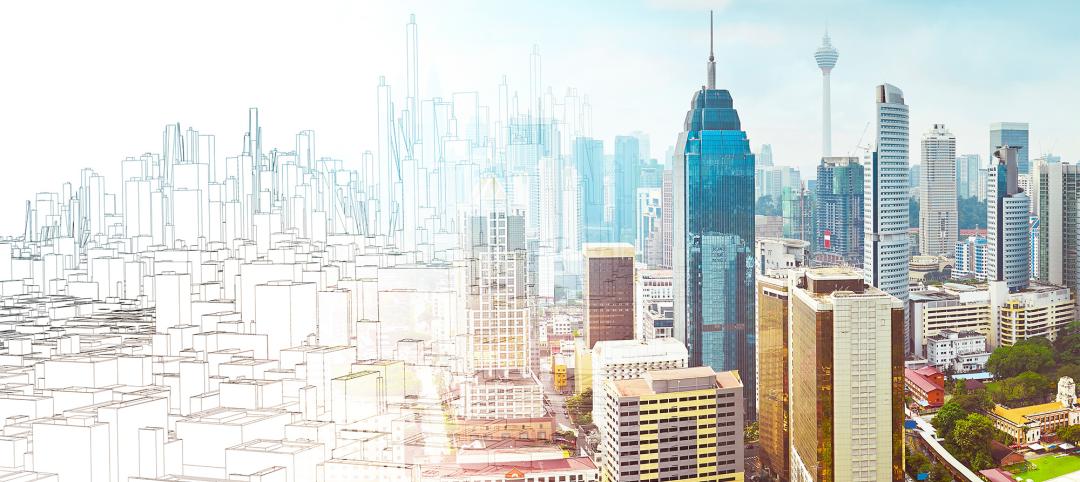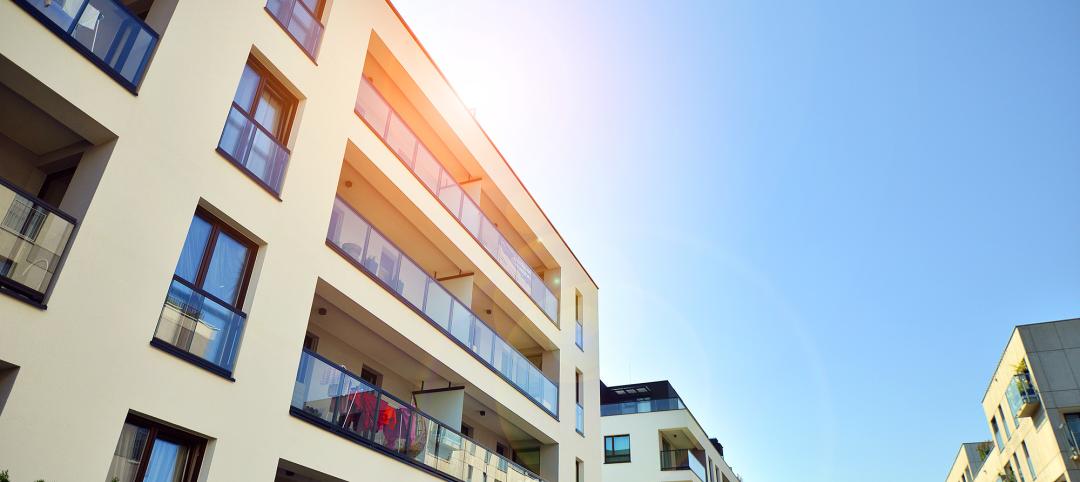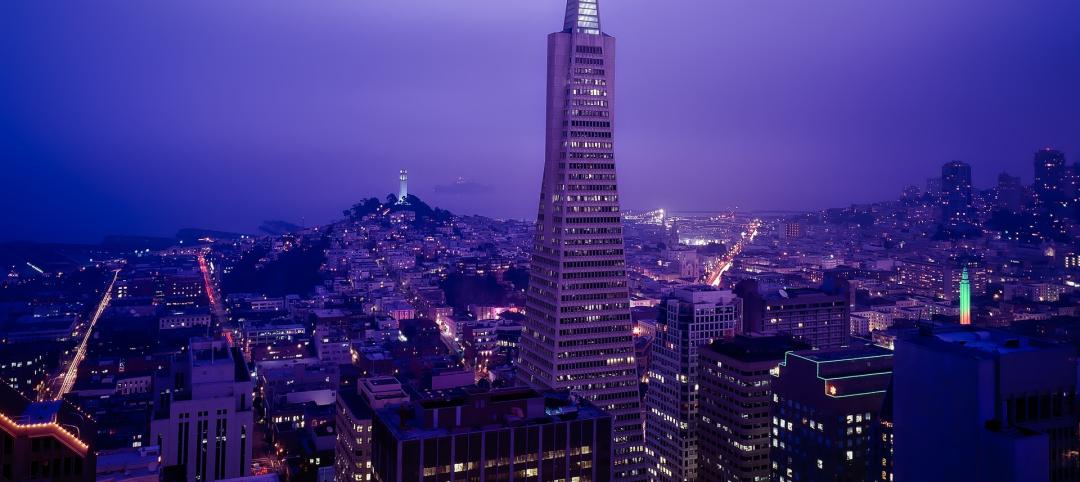Lendlease and joint venture partner Aware Super, one of Australia’s largest superannuation funds, today announced the acquisition of $4 million in support from the New York State Energy Research and Development Authority (NYSERDA) to build a geoexchange system at 1 Java Street in Brooklyn. Once completed, the all-electric property will be the largest residential project in New York State to use a geothermal heat exchange system, according to NYSERDA.
Situated on a 2.6-acre site, 1 Java Street will comprise five interconnected buildings, including 37-story and 20-story towers. Based on square footage, building height, the 834 residential units and number of boreholes, the geothermal system will be the largest multifamily project in New York State. It is believed to be the largest high-rise residential geoexchange system in the country.
The $4 million in funding was obtained through a competitive grant from NYSERDA’s Community Heat Pump Systems Pilot Program. The project—which has received support by local elected officials and the North Brooklyn Neighbors community planning organization—included a feasibility analysis, design work and the currently-underway installation of a community heat pump system, also known as a thermal energy network.
“1 Java Street presents us with the opportunity to establish a pioneering model for geothermal energy, aligning with New York’s ambitious climate goals, as well as our global targets of absolute zero carbon by 2040,” said Scott Walsh, Project Director, New York Development for Lendlease. “Our decision to use geothermal was driven not only by the environmental benefits and cost savings, but also enhanced marketability upon completion.”
NYSERDA Director of Clean Heating and Cooling Donovan Gordon said: “Community thermal networks are an important step in scaling building electrification and helping more residents benefit from clean energy infrastructure that can lead to long-term energy savings. Our support for this innovative project using the latest in clean heating and cooling technology will help us meet New York State’s climate and clean energy goals while reducing emissions in Brooklyn.”
Once completed, the geothermal system at 1 Java Street will reduce annual carbon emissions from heating and cooling by 53% compared with typical residential systems. As an all-electric building, 1 Java Street will also avoid carbon emissions related to the use of natural gas.
The on-site geothermal and all-electric systems of 1 Java Street ensure the project will meet or exceed Local Law 97, New York’s decarbonization legislation, and align with Mission Zero, Lendlease’s industry-leading initiative to reach absolute zero carbon—extending to its supply chain—by 2040. 1 Java Street will also target a range of sustainability initiatives including LEED Gold, Fitwel and Waterfront Edge Design Guidelines certification.
Slated for completion in late 2025, 1 Java Street is the sixth project developed and operated as part of the Aware Super and Lendlease joint venture Americas multifamily portfolio, which achieved net zero carbon in 2021. The joint venture’s stabilized assets were also recently recognized by GRESB as Regional Sector Leader for superior ESG performance.
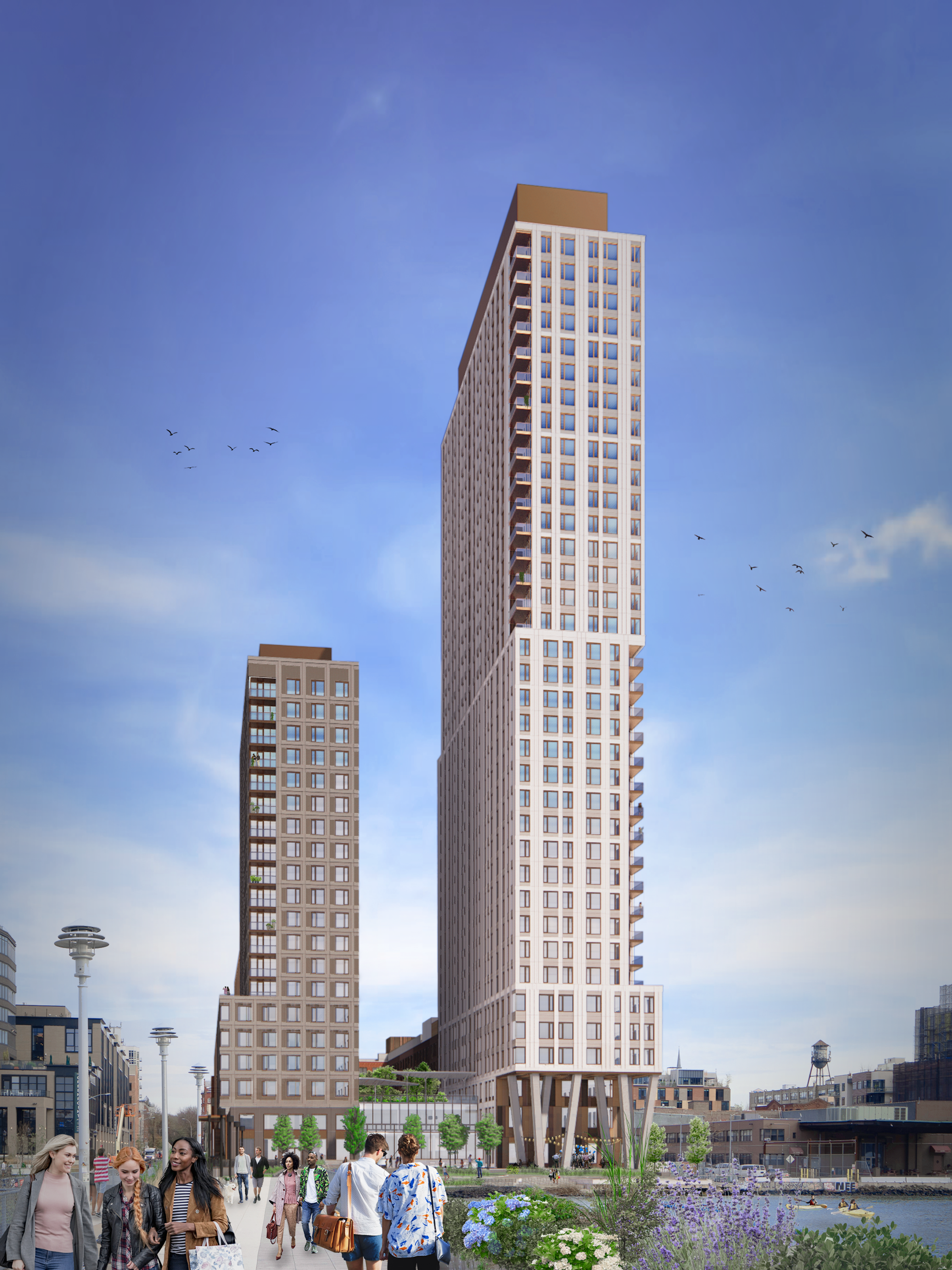
“We’re excited to celebrate the geothermal project that 1 Java Street is delivering for our property portfolio," said Alek Misev, Aware Super's Senior Portfolio Manager. "The sustainable benefits to be generated from New York City’s largest residential geothermal project will not only demand less energy from the grid at peak times, but also reduce carbon emissions, both of which are expected to uplift the value of this asset.”
Thirty percent of 1 Java Street's residential units have been designated as affordable housing under the Affordable New York Housing Program. In addition, over 13,000 square feet of space at the ground floor will be activated with retail. The property will also encompass a reimagined, 18,000-square-foot public waterfront esplanade that connects to the India Street Pier, which is served by the East River Ferry.
Overview of 1 Java Street’s Geothermal System
The geothermal system at 1 Java Street is a vertical closed loop system with underground pipes that circulate a water solution to be heated or cooled by the earth; a heat pump will utilize that temperature differential to help heat or cool the building, reducing the need for utility power. In the winter, when the underground temperature exceeds the surface air temperature, the water solution is used to transfer heat from the ground to building interiors. The process is reversed in the summer, when heat from the building is released underground using the same system.
1 Java Street benefits from its 2.6-acre, full-block location, allowing for the drilling of 320 boreholes. As a closed loop system requires no future access or maintenance, 1 Java Street’s borefield is located beneath the building. The site’s underground geology, which is largely composed of bedrock, provides an ideal medium for efficient thermal exchange.
Compared to conventional technologies, closed loop geothermal systems are more energy efficient and emit fewer carbon emissions. The geothermal system designed for 1 Java Street will account for 1,050 fewer metric tons of CO2 equivalent emissions than if the building used a traditional boiler/tower system. This is equivalent to planting over 5,200 trees.
The geothermal system will provide all the space heating, water heating and cooling for the project. In addition, 1 Java Street will be fully electric, with all cooking, clothes drying and other functions performed by electric appliances and building systems. This means the property will comply with New York City’s Local Law 154 – the city’s legislation that mandates most new buildings over seven stories be fully electric by 2027.
More about the 1 Java Street development by Lendlease
Developed by Lendlease, 1 Java Street is a sustainable, urban regeneration development along the Greenpoint waterfront in Brooklyn, New York. Scheduled for completion in late 2025, the project will comprise 834 rental units, 30% of which have been designated as affordable housing under the Affordable New York Housing Program. The all-electric property will utilize a vertical closed-loop geoexchange system, making it the largest geothermal residential development in New York State.
Designed by Marvel, 1 Java Street will be comprised of five interconnected buildings, including a 37-story and a 20-story tower. The property will feature nearly 13,000 square feet of retail space, as well as an 18,000-square-foot public waterfront esplanade connecting to the India Street Pier, which is served by the East River Ferry. Targeting LEED Gold certification and designed to meet or exceed Local Law 154, New York City’s legislation that mandates new construction to be all-electric, and Local Law 97, New York City’s decarbonization legislation, 1 Java Street aligns with Mission Zero, Lendlease’s industry-leading initiative to reach absolute zero carbon by 2040.
Related Stories
Mixed-Use | Oct 7, 2024
New mixed-use tower by Studio Gang completes first phase of San Francisco waterfront redevelopment
Construction was recently completed on Verde, a new mixed-use tower along the San Francisco waterfront, marking the end of the first phase of the Mission Rock development. Verde is the fourth and final building of phase one of the 28-acre project that will be constructed in several phases guided by design principles developed by a design cohort led by Studio Gang.
MFPRO+ News | Sep 24, 2024
Major Massachusetts housing law aims to build or save 65,000 multifamily and single-family homes
Massachusetts Gov. Maura Healey recently signed far-reaching legislation to boost housing production and address the high cost of housing in the Bay State. The Affordable Homes Act aims to build or save 65,000 homes through $5.1 billion in spending and 49 policy initiatives.
MFPRO+ News | Sep 23, 2024
Minnesota bans cannabis smoking and vaping in multifamily housing units
Minnesota recently enacted a first-in-the-nation statewide ban on smoking and vaping cannabis in multifamily properties including in individual living units. The law has an exemption for those using marijuana for medical purposes.
The Changing Built Environment | Sep 23, 2024
Half-century real estate data shows top cities for multifamily housing, self-storage, and more
Research platform StorageCafe has conducted an analysis of U.S. real estate activity from 1980 to 2023, focusing on six major sectors: single-family, multifamily, industrial, office, retail, and self-storage.
Mixed-Use | Sep 19, 2024
A Toronto development will transform a 32-acre shopping center site into a mixed-use urban neighborhood
Toronto developers Mattamy Homes and QuadReal Property Group have launched The Clove, the first phase in the Cloverdale, a $6 billion multi-tower development. The project will transform Cloverdale Mall, a 32-acre shopping center in Toronto, into a mixed-use urban neighborhood.
Codes and Standards | Sep 17, 2024
New California building code encourages, but does not mandate heat pumps
New California homes are more likely to have all-electric appliances starting in 2026 after the state’s energy regulators approved new state building standards. The new building code will encourage installation of heat pumps without actually banning gas heating.
Adaptive Reuse | Sep 12, 2024
White paper on office-to-residential conversions released by IAPMO
IAPMO has published a new white paper titled “Adaptive Reuse: Converting Offices to Multi-Residential Family,” a comprehensive analysis of addressing housing shortages through the conversion of office spaces into residential units.
MFPRO+ Research | Sep 11, 2024
Multifamily rents fall for first time in 6 months
Ending its six-month streak of growth, the average advertised multifamily rent fell by $1 in August 2024 to $1,741.
Legislation | Sep 9, 2024
Efforts to encourage more housing projects on California coast stall
A movement to encourage more housing projects along the California coast has stalled out in the California legislature. Earlier this year, lawmakers, with the backing of some housing activists, introduced a series of bills aimed at making it easier to build apartments and accessory dwelling units along California’s highly regulated coast.
MFPRO+ New Projects | Sep 5, 2024
Chicago's Coppia luxury multifamily high-rise features geometric figures on the façade
Coppia, a new high-rise luxury multifamily property in Chicago, features a distinctive façade with geometric features and resort-style amenities. The 19-story, 315,000-sf building has more than 24,000 sf of amenity space designed to extend resident’s living spaces. These areas offer places to work, socialize, exercise, and unwind.


